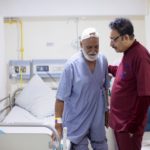2.Insect bites:Encourage patients to use insect repellents (DEET, picaridin, IR3535, oil of lemon eucalyptus, para-menthane-3, 8-diol, or 2-undecanone); advise use of mosquito nets, especially for rooms without screens or air conditioning. Insect bites can transmit mosquito-borne diseases (Zika, dengue, yellow fever, or malaria), tick-borne diseases (Lyme disease, spotted fevers), fly-borne diseases (leishmaniasis, sleeping sickness) and flea-borne diseases (typhus, plague).
3.Food and water safety:Encourage patients to choose food that is cooked and served hot, food from sealed packages, peeled fruits and vegetables, and pasteurized dairy. Travelers should avoid drinking tap water or using ice. Bottled and canned drinks are safer choices.
4.Deep vein thrombosis (DVT):Long-distance travelers should be counseled about associated risks that increase their chances of developing DVT. People at higher risk include those who were recently hospitalized or had recent surgery, pregnant women, and those in the postpartum period (up to 3 months after childbirth). Other risk factors include history of previous DVT; family history of DVT; obesity; increased estrogen; indwelling catheters; cancer; and certain chronic medical illnesses, such as heart or lung disease. Remind patients to move their legs frequently and to walk around every 2-3 hours while traveling. Educate them about the symptoms and what to do.
5.Road and traffic risks: Patients should always wear seat belts; avoid riding in a car in a developing country at night,if possible; avoid riding motorcycles; Know local traffic laws before driving; ride only in marked taxis that have seat belts and avoid overcrowded buses.







